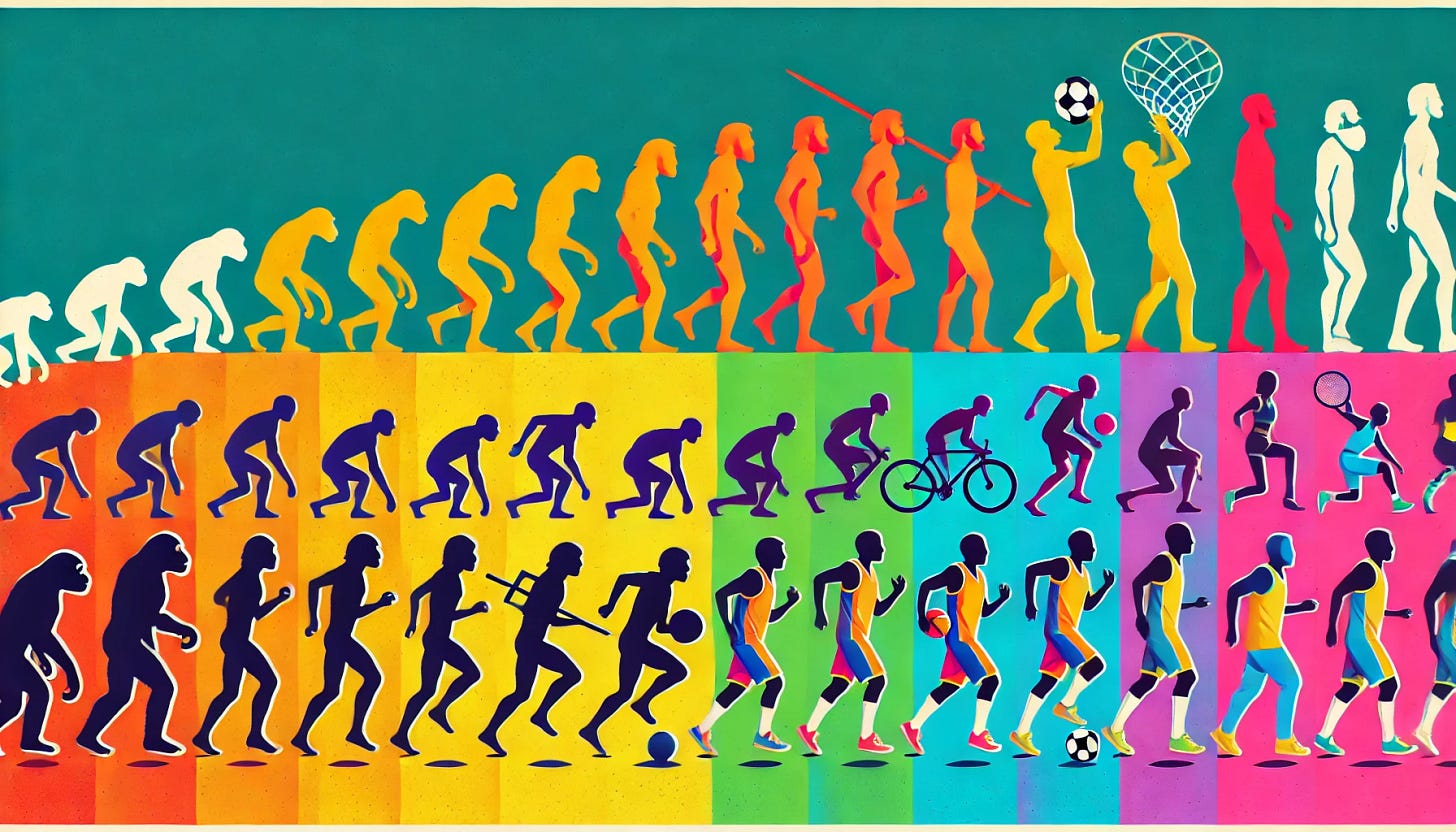The Evolution of Sports
Billions of people spend vast amounts of mental energy watching other people run around, often kicking or throwing or hitting balls. We attach our identity and our mood to them. Why do we do that?
Thank you for reading The Garden of Forking Paths. Much of this article is for paid subscribers only. If you value my work and want to support it—and would like to unlock the full archive of more than 130 articles like this one in the process—please consider upgrading to a paid subscription for just $4/month. I rely exclusively on your support to keep writing. Or, you can support my work by buying my new book—FLUKE—wherever good books are sold.
One of my more perplexing behaviors is this: I spend significant chunks of my waking life—and surrender my mood—to observing how effectively my favored group of adult humans can move a ball around a field, thousands of miles away.
This strikes me as extraordinarily irrational.1 Why should I become gripped with despair when a grown man whom I have never met kicks an inflatable leather ball a few inches outside of a yellow metal post?2 Why have I devoted a strikingly large number of neurons to knowing the names, faces, and associated statistics of people who are known to me only because they are astonishingly good at whacking a rapidly moving small object with a modified stick?
I do not have good answers to these questions, other than that the chemical reactions in my brain often seem to produce feelings of joy and contentment when I devote some of my precious, finite hours on Earth to the perplexing pastime of watching strangers play a game with arbitrary rules, invented by some other people who are long dead.
Later this week, billions of people will tune in to a resurrection of an ancient sporting custom—the Olympics—tying nationalism together with sporting prowess. Countless viewers, myself included, will marvel at the extremes of human ability. Some will lay sprawled on their sofas, potato chip dust coating their reclined bellies, decrying an athlete as a failure for not sticking the landing. Other spectators will literally jump with joy when a human who happened to be born in the same country glides through the water one-hundredth of a second faster than a competitor born elsewhere.
I love watching the Olympics. I am a devoted sports fan. But I cannot readily explain why. So, I set out to find a satisfactory answer to a question that stares us in the face but that few of us thoroughly ponder:
How does human evolution explain the rise of sports?
As one scholar rather charitably hypothesized: “It has been suggested that humans might have evolved a motivational drive to play and engage in sports similar to the urge of a bird to head south when the temperature begins to drop or a hamster to run in a wheel when kept in a cage.” Human culture functioning as an instinct-driven hamster wheel is not a comforting thought.
Thankfully, research into the real story of the evolution of sports is more complex—and far more interesting.



